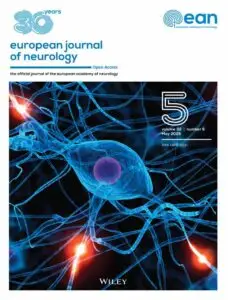
Functional neurological disorder in Europe
Regional differences in education and health policy
Serranová T, Di Vico I, Tinazzi M, et al.
European Journal of Neurology (2024)
- education
- Clinical Study, Research Translation
Key Takeaways
Education and training
- Only 5 countries included FND as mandatory in neurology training, compared to all countries for MS.
- FND was included in final neurology exams in only 3/17 countries, versus all 17 for MS.
- The average number of lectures on FND was 2.6 vs 10.5 for MS.
Access to care
- The estimated ratio of FND specialists to MS specialists was 1:20.
- 7 countries reported no specialized FND services.
- 80% reported some services refuse FND patients.
Policies and benefits
- Psychiatric coding of FND limited access to treatment and disability benefits in most countries.
- 92% reported FND patients had limited access to disability certification compared to other neurological conditions.
Academic and patient representation
- Only 5 countries had an FND study group in their national neurology society.
- 11 countries reported patient-led FND organizations.
Continue Reading
Overview
This study surveyed experts from 25 European countries to assess education, training, access to care, and policies related to functional neurological disorder (FND) compared to multiple sclerosis (MS). The results reveal significant gaps in FND education, specialized care, and support across Europe.
Discussion
The study reveals a widespread lack of education, specialized care, and support for FND across Europe compared to a similarly common condition like MS. This impacts diagnosis, treatment access, and disability recognition. Improving neurology education on FND and developing more specialized services are key priorities to address these gaps.
Next Steps
Understanding the Education Gap
- Your healthcare providers may have received limited training on FND during their education, which could impact their familiarity with your condition. Don’t be discouraged if you need to advocate for appropriate care or seek specialists with FND experience.
Finding Specialized Care
- Specialized FND services are limited across Europe (with 7 countries reporting no specialized services at all). If you’re struggling to find local expertise, ask your neurologist or primary care doctor for referrals to practitioners who have experience with FND.
- Consider seeking telehealth consultations with FND specialists if none are available in your area.
Navigating Treatment and Benefits Systems
- Be aware that the way FND is coded in medical systems (often as a psychiatric condition) may affect your access to certain treatments or disability benefits.
- When applying for disability support or benefits, you might need additional documentation from your healthcare team explaining the functional impact of your symptoms.
- Consider bringing educational materials about FND to appointments with providers who seem unfamiliar with the condition.
Connecting with Support Networks
- Check if your country has a patient-led FND organization. These groups can provide valuable emotional support, practical advice, and potentially advocacy assistance.
- If no local group exists, consider online support communities where you can connect with others with FND internationally.
Building Your Care Team
- FND often benefits from interdisciplinary care. Consider working with a team that might include neurologists, psychiatrists, psychologists, physiotherapists, and occupational therapists.
- Bring information about collaborative care approaches to your healthcare providers if they don’t suggest this approach.
Self-Advocacy
- Keep records of your symptoms, triggers, and treatment responses to help healthcare providers understand your unique experience with FND.
- The research shows there’s a need for improved education and care systems for FND. Your experiences and advocacy can help drive awareness and change.
Remember, while these systemic challenges exist, many healthcare providers are committed to providing quality care for people with FND. Building partnerships with knowledgeable providers and connecting with others who share your experiences can help you navigate these gaps in the healthcare system.
Reference
Serranová T, Di Vico I, Tinazzi M, et al. Functional neurological disorder in Europe: regional differences in education and health policy. Eur J Neurol. 2024;31:e16350. doi:10.1111/ene.16350
This summary is provided for informational purposes only and does not constitute medical, financial, or legal advice. It is not intended to replace professional consultation or treatment. Always consult qualified healthcare providers regarding your specific circumstances, symptoms, or questions.
